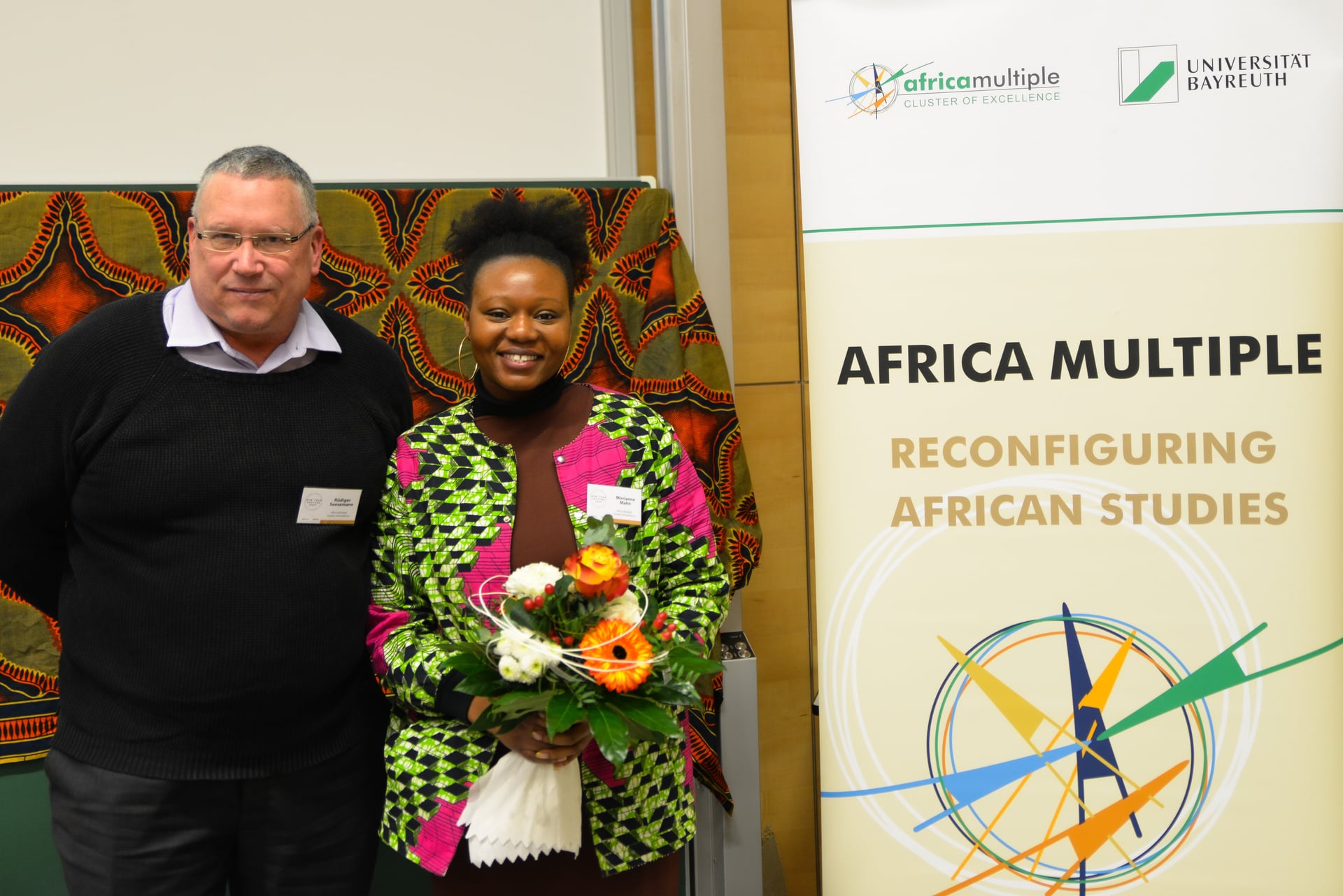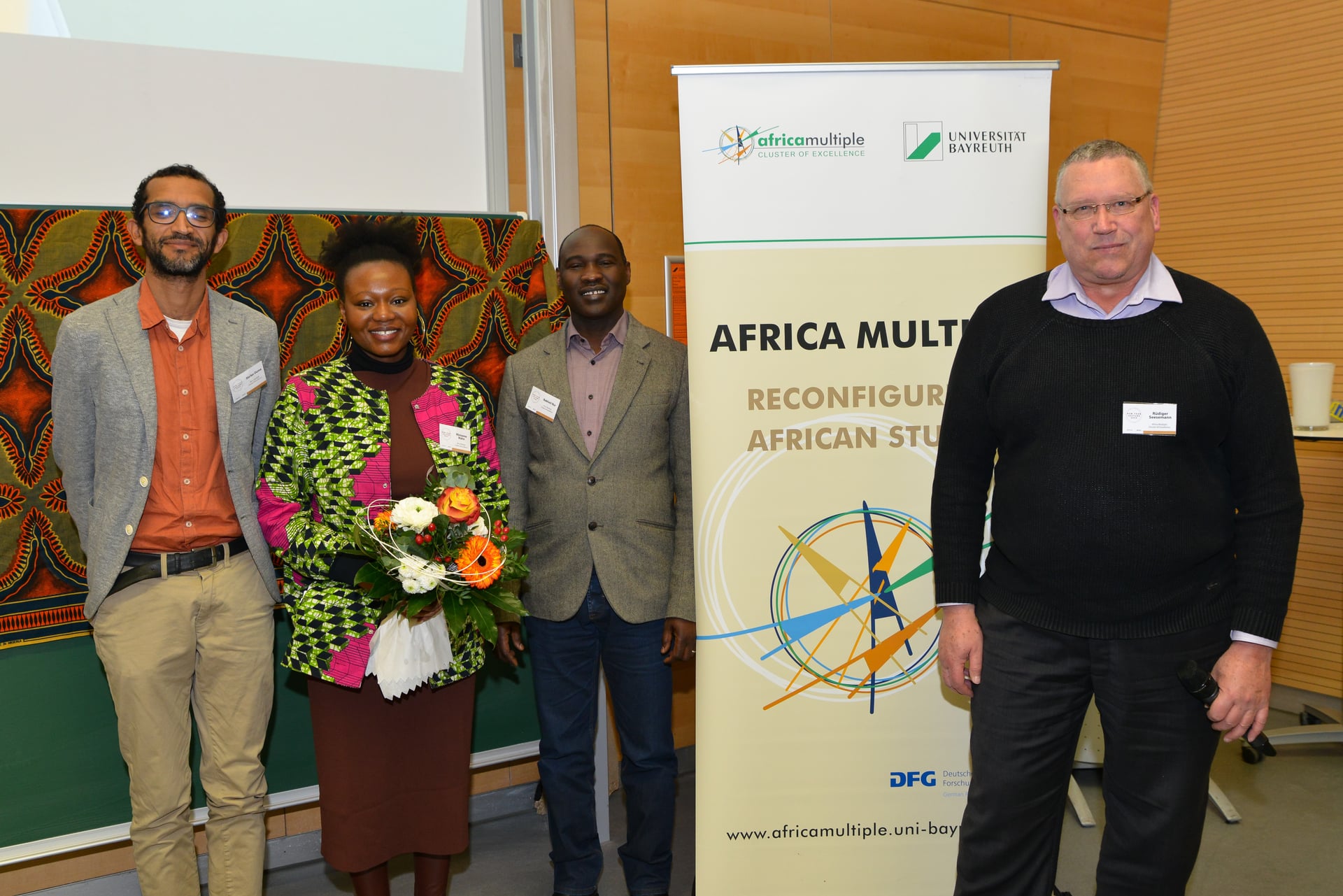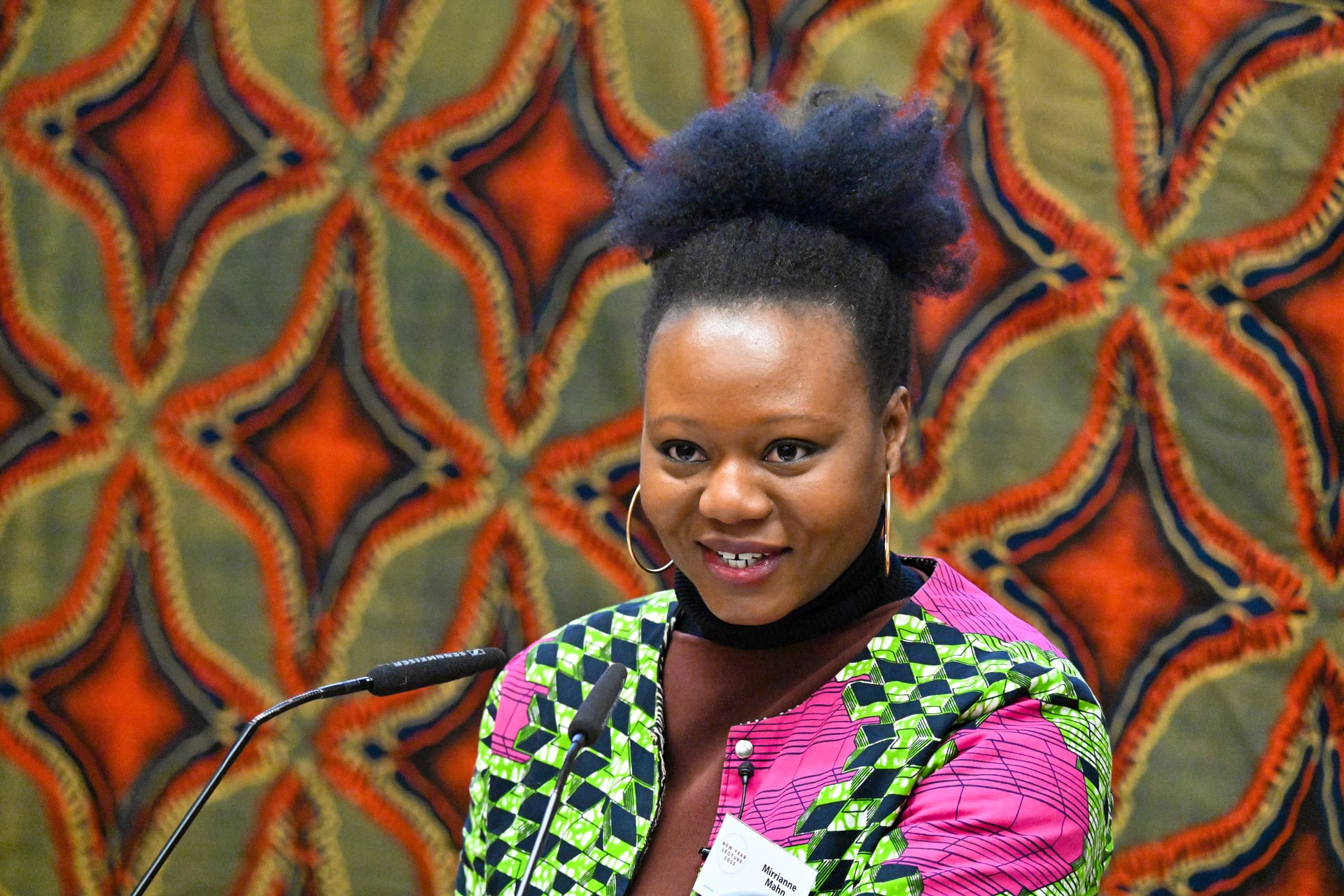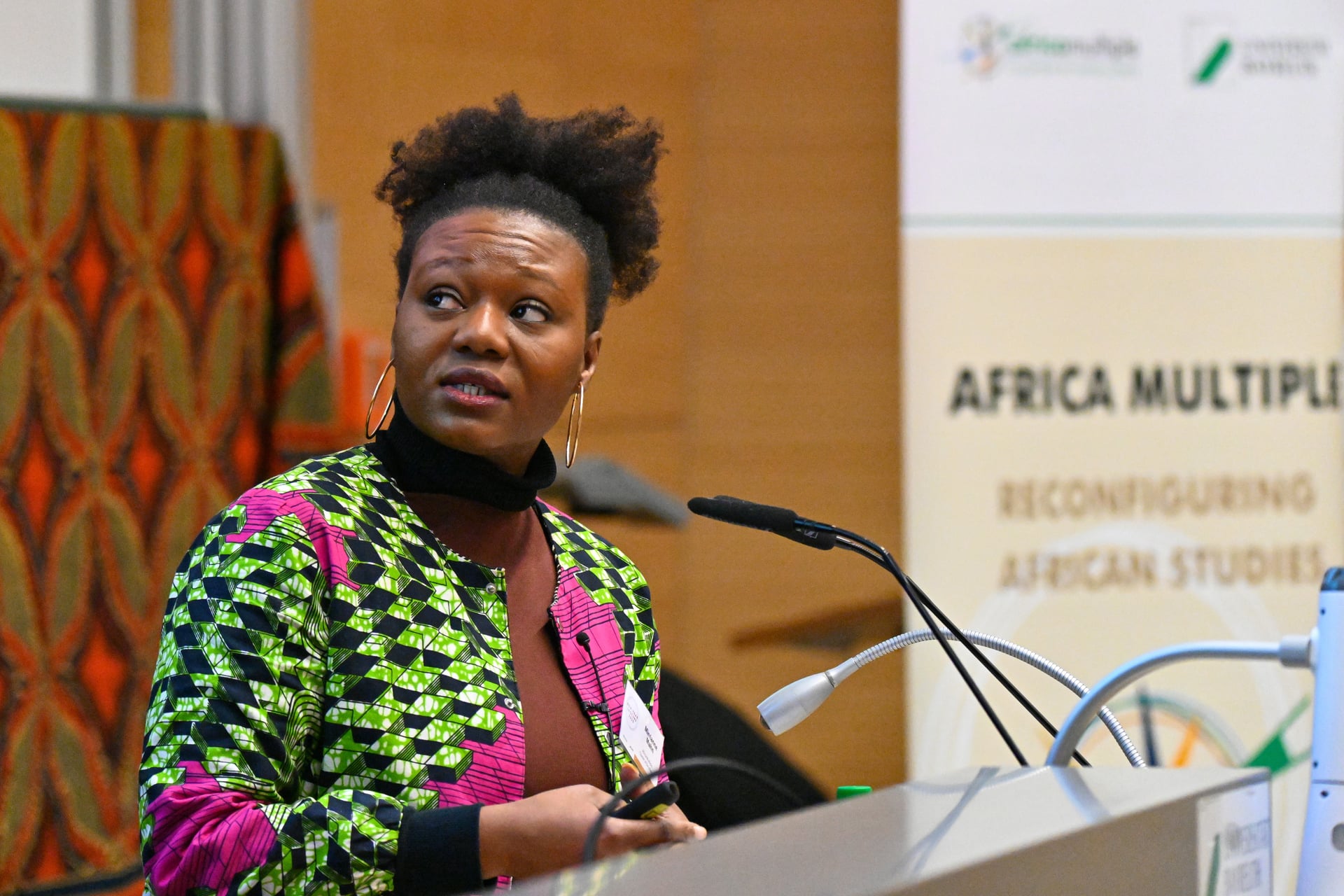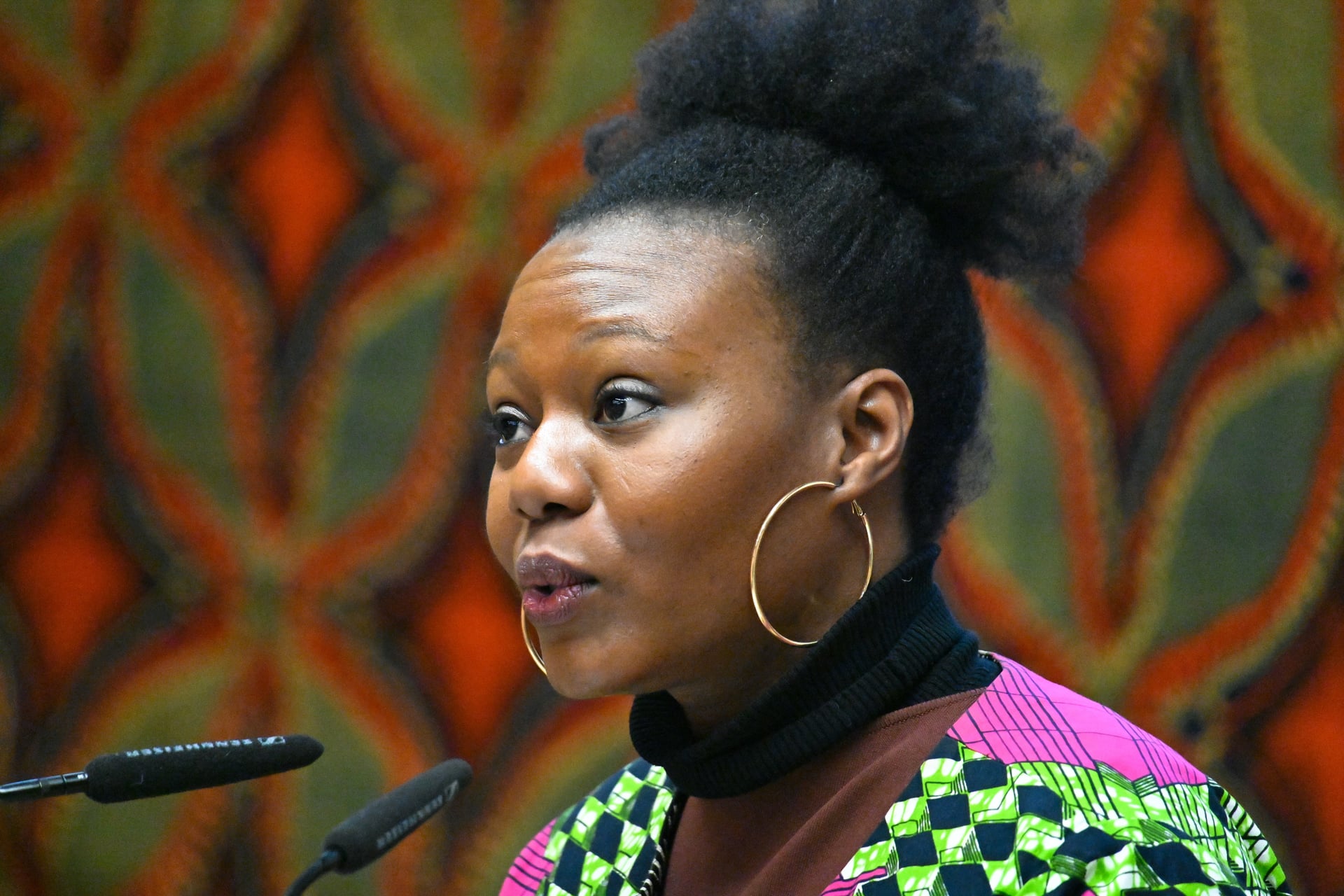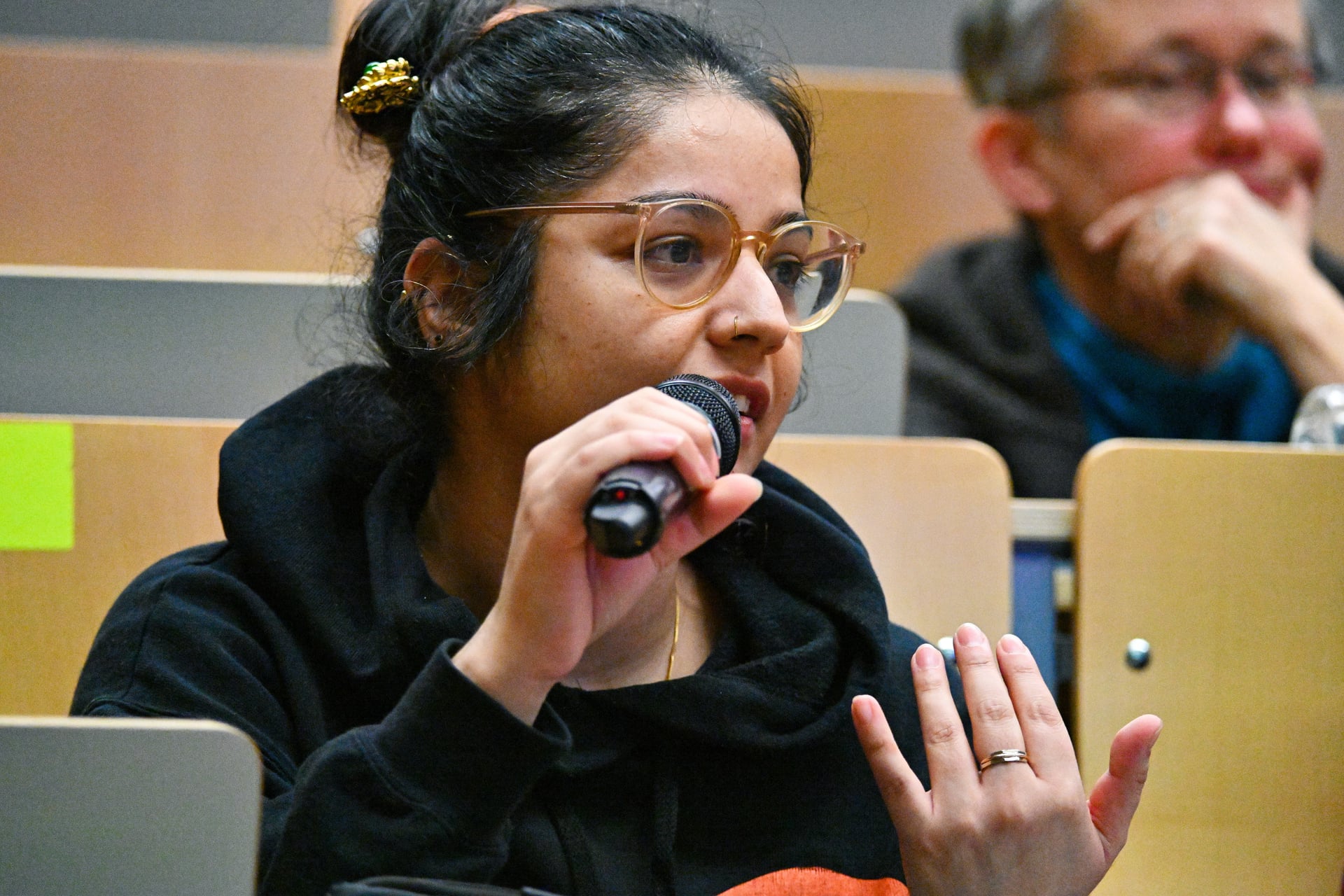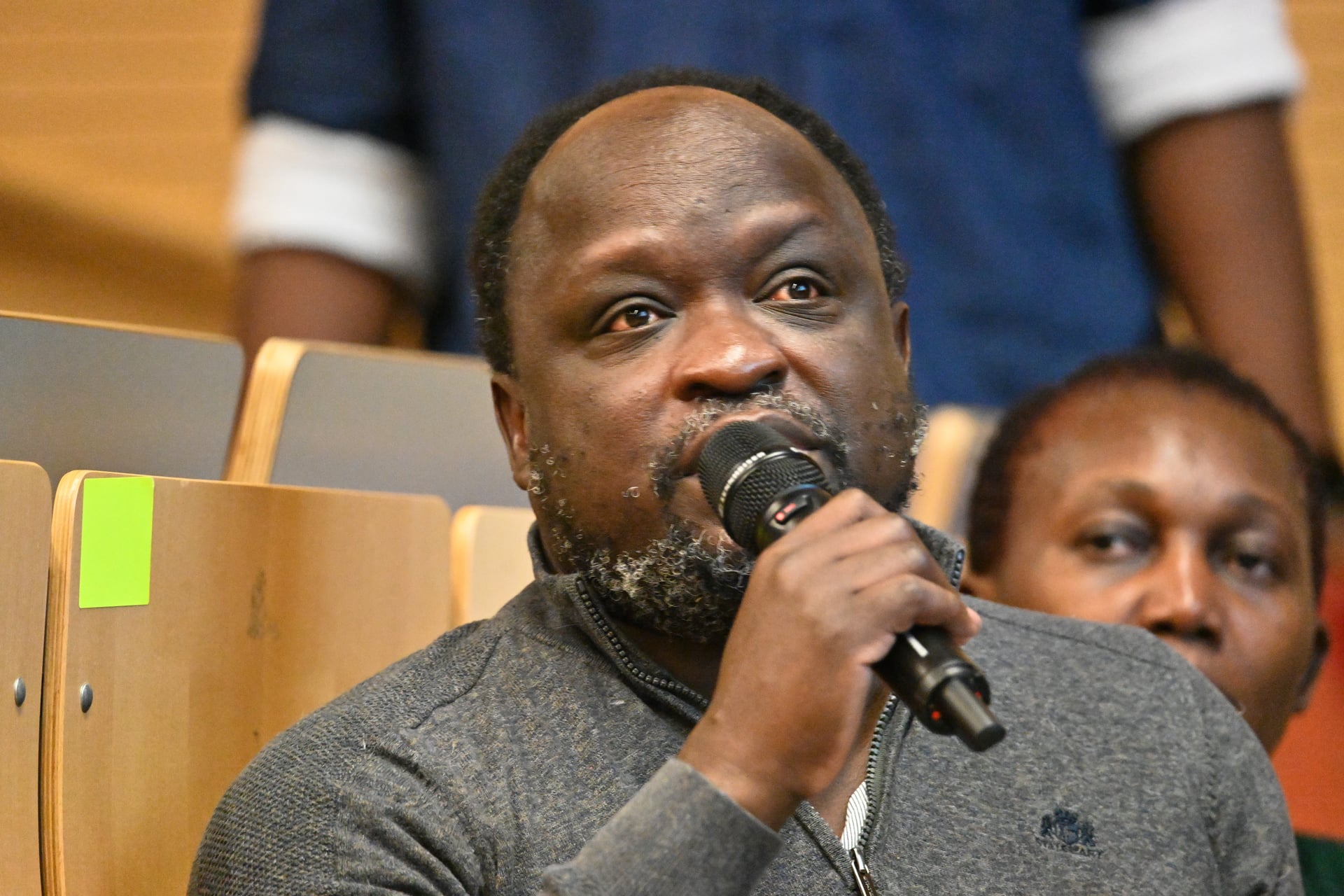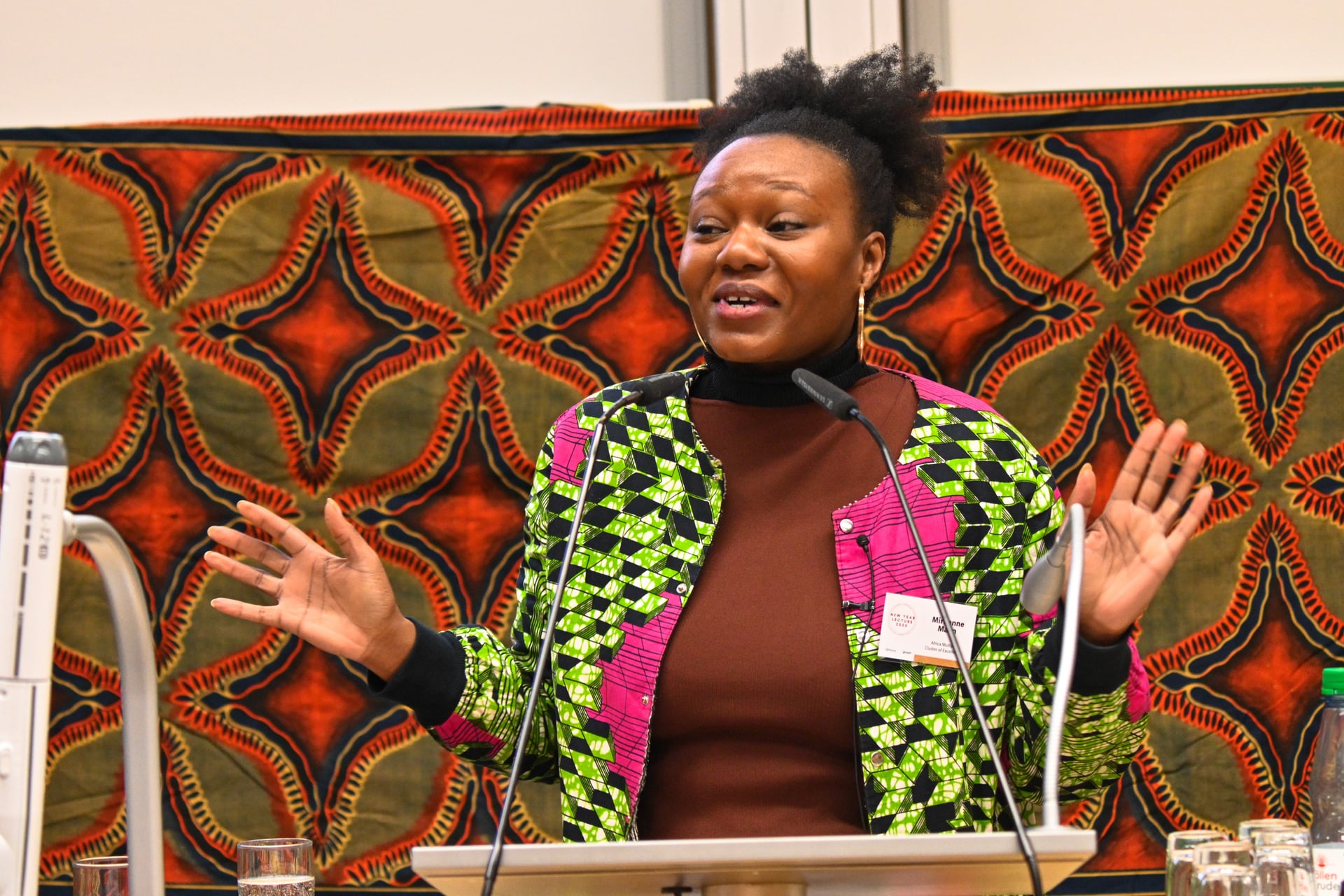News
Living Intersectionality: Mirrianne Mahn’s Call for Necessary Trouble in Cultural and Political Spaces
24.01.2025
On January 23, 2025, activist, author, and Frankfurt city councillor Mirrianne Mahn delivered a powerful lecture that transcended the narrow domain of academia, addressing lived political experiences and concrete, transformative interventions in society.
Entitled “Intersectionality as a Living Practice: Beyond Labels and Boundaries”, Mirrianne Mahn’s talk marked the sixth annual New Year Lecture organized by the Africa Multiple Cluster of Excellence. For the first time in the lecture series’ history, the Cluster invited a speaker from outside its academic network – highlighting not just a change in protocol but also a profound statement of intent.
During her talk, Mahn, a Black German woman of Cameroonian background, illuminated how intersectionality is not just a theory to be dissected in academic seminars but a practice that demands to be lived. Her lecture wove together biographical accounts of her political battles and literary endeavours, and cultural reflections to show how intersectionality can serve as a framework for survival, resistance, and transformation.
The Roots of Resistance: A Personal Story
Mahn began her talk by reflecting on her upbringing in Germany. Raised by grandparents who believed in cultural exposure as a route to success, she was immersed in Germany’s culture from an early age – dragged from classical theatre to museum exhibitions and introduced to Goethe and Schiller before she could fully comprehend their prose. Her grandmother once told her that museums help us understand “where we come from, who we are, and where we are going.” Years later, Mahn revisits that phrase, realizing its poignancy despite its contradictions. Museums, she noted, are also sites of colonial violence and erasure, housing looted artefacts and glorifying a history that excluded people like her.
Her experiences with race, identity, and cultural alienation continued into adulthood, where she found herself frequently asking the question her own mother once posed: “Why make your life harder by constantly arguing with white people?” Her mother’s survival strategy was rooted in silence and endurance – coming to Germany pregnant, without speaking the language, simply trying to exist. Mahn’s path, however, has been different. Inspired by her mother’s strength and her own growing awareness of systemic injustices, Mahn chose confrontation and transformation rather than silence.
Claiming Space in Hostile Terrain
For Mahn, intersectionality is not an academic abstraction – it is the mode that helps her navigate her roles as a Black woman in German politics, a writer in a predominantly white publishing industry, and a cultural consultant in institutions resistant to change. When she entered Frankfurt’s city council as the only Black woman, she was immediately confronted with everyday racism and sexism – what she called the “1990s kind of racism.” Assumptions about her car ownership, her professionalism, her tone – everything about her presence was scrutinized.
Yet rather than withdraw, she chose to act. She introduced a motion to ban the use of racial slurs – specifically the “N-word” and the “M-word” – in Frankfurt’s schools and public institutions. The backlash was intense. Mahn was accused of hypersensitivity, of overreaching, of disrupting traditions. Still, she persisted. The motion was eventually passed, albeit in a weakened form. For her, the victory was not in the full success of the legislation but in the refusal to accept a status quo that continuously debates the dignity of marginalized communities.
“Institutional racism doesn’t shout slurs from the street,” she noted. “It wears a tie, it wears high heels, and it speaks calmly.” Her point was that structural racism often hides behind rationality, tradition, and bureaucracy. Its superficially polite tone masks deep systems of exclusion – and this is exactly why intersectional awareness is essential when crafting policies and challenging institutions.
Art as Activism, Storytelling as Resistance
Mirrianne Mahn’s activism extends far beyond political chambers. Her debut novel Issa, published in spring 2024, is a fictionalized multigenerational saga spanning over a century, beginning in colonial Cameroon. It follows the lives of five women whose stories are bound by trauma, survival, and resilience. Through Issa, Mahn explores the impact of colonialism, racism, and gendered violence, while celebrating the strength passed down through generations. Writing Issa was both a personal and political act. It was, she said, “a desperate act of self-healing.” It allowed her to process her own identity as a Black German woman while offering readers a lens into histories and lives often ignored in mainstream literature. From urban Germany to rural Cameroon, Issa connects continents, cultures, and causes.
Mahn’s success with the novel – over 70 public readings, critical acclaim, and international attention – highlights a paradox she has encountered. The very media outlets that praised her novel for its wit and emotional depth had previously dismissed her activism as “too loud” or “not objective enough.” This contradiction underscores the selective tolerance in German cultural spaces: diversity is welcome when packaged as entertainment or art, but usually resisted when it challenges power directly. Yet storytelling, she argued, can do what traditional activism sometimes cannot. It opens hearts where arguments hit walls. “Choose your trouble,” she said, quoting civil rights legend John Lewis, “and sometimes, that trouble is storytelling.”
From Paulskirche to Parliament: Speaking Truth to Power
Mahn’s boldness reached national headlines when she intervened during the German Book Prize ceremony honoring Zimbabwean author Tsitsi Dangarembga at the Paulskirche in Frankfurt. Her protest against the presence of far-right publishers at the same book fair triggered a political firestorm. In the aftermath, Mahn and her family received threats that forced them to move. Still, she stood by her decision. “We must create spaces where marginalized voices are not only heard but protected,” she said. Her intervention was not about disruption – it was about accountability. It was a reminder that inclusion without protection is a hollow gesture. This philosophy runs through all her work: in literature, in politics, and in public discourse. She sees intersectionality as both a shield and a sword – a tool to analyse systems of oppression, and a strategy to dismantle them.
Reimagining Culture, Rewriting Narratives
In the final stretch of her lecture, Mahn reflected on her experiences navigating the publishing world. Even here, in supposedly progressive spaces, racial bias surfaced in subtle yet telling ways. From cover designs drenched in African stereotypes to marketing strategies that exoticised her identity, she had to fight for authentic representation at every step. “Even in progressive institutions, the work of dismantling bias is never done,” she said.
She emphasized that representation is more than visibility – it is about who gets to tell stories and who holds power in shaping cultural narratives. Too often, marginalized people are welcomed into cultural institutions as performers but excluded from decision-making roles. “True representation,” she argued, “is about empowering individuals to tell their own stories – free from the constraints of dominant narratives.” Mahn urged the audience to confront these hierarchies – not with guilt, but with responsibility. She called on academics, artists, and policymakers alike to embrace discomfort, to make “necessary trouble,” and to stop waiting for permission to speak up.
A Global and Historical Lens
To ground her message historically, Mahn highlighted African feminist traditions, particularly the work of Funmilayo Ransome-Kuti, the Nigerian anti-colonial activist who organized one of the continent’s most influential women’s movements. These precolonial feminist models, she noted, were erased by colonialism and patriarchy but remain deeply relevant today. “Colonialism was a child of patriarchy,” she reminded the audience, connecting racism, sexism, ableism, and other forms of oppression through shared historical roots.
Mahn’s lecture concluded with a tribute to the women who inspired her – a slideshow of activists, thinkers, and artists whose names she encouraged the audience to learn. “We often wait too long to give people their flowers,” she said. “Let’s do it while they’re still with us.”
Intersectionality as a Daily Commitment
In conclusion, Mirrianne Mahn’s message in the Cluster’s 2025 New Year Lecture was urgent but hopeful. Intersectionality, she said, is not a checklist or buzzword – it is a lens through which we see the world, a daily practice, and a call to action. It challenges us to connect struggles, embrace discomfort, and demand accountability. Whether in a classroom, a cultural institution, or a city hall, intersectionality must move beyond theory and into the realm of the everyday. “We must continue,” she said, “to challenge the status quo and build a more inclusive future – one story at a time.”


